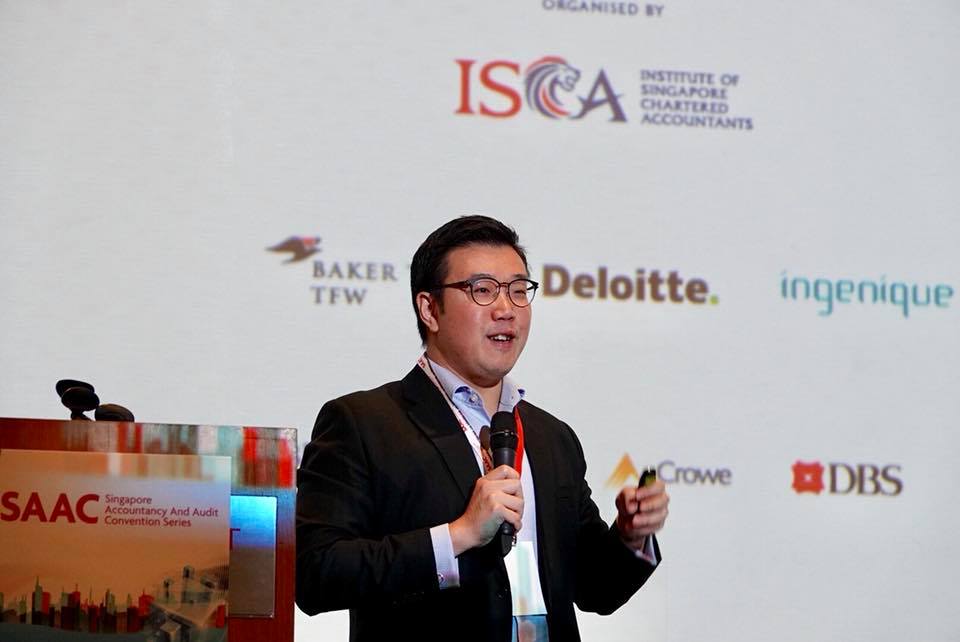The mention of artificial Intelligence often conjures up a sense of fear and apprehension, fear of the unknown possibilities of artificial intelligence brought on by movies like “The Terminator” and more practically, fear of the possibility that artificial intelligence will take our jobs. As with all disruptive technologies, it is only inevitable that artificial intelligence will replace human workers. But whilst taking jobs, artificial intelligence will also create new jobs. A report by Gartner states that although artificial intelligence is expected to eliminate 1.8 million jobs, it will create 2.3 million jobs in the process. More importantly, apart from creating new jobs, artificial intelligence will change the way some jobs are currently done. This is especially so for current specialist professions.
 Rise of New Professions
Rise of New Professions
The proliferation of artificial intelligence is powered by data, vast quantities of it. Therefore, it is no surprise that the growth of artificial intelligence will likely see the rise of professions such as data scientists, artificial intelligence and machine learning engineers and data protection specialist. Data scientist will be required to analyze the data and to understand the complex behaviors, trends and inferences and also to discover new insights from the vast data sets, all of which will make artificial intelligence “smarter”. Artificial intelligence and machine learning engineers work hand in hand with data scientists to translate these learnings into code or into a machine programmable language. Lastly, data protection specialists are required to ensure that the vast data sets, machine learning models and code will be protected as they become more valuable in an artificial intelligence enriched world. Data protection specialists will be needed to secure databases against hackers through network security measures such as firewalls and other intrusion detection tools.
Old Wine in New Bottles?
But what about the position of the current specialist professions? The headlines have also proclaimed that the rarefied position of such professions is coming to an end, due to the increasing capabilities of artificial intelligence coupled with an increasingly digital society. This is undoubtedly more apparent for desk bound specialist professions such as lawyers and accountants whose domains essentially revolve around the ability to categorize, understand and process data – all the things which artificial intelligence purport to excel in. The reality is that such professionals are beginning to experience what manual labourers have in the past when new technology made their jobs obsolete. Given the quantum leaps that have been made in computing and artificial intelligence, it is justified for current specialist professionals to fear for their future as machines threaten to take over.
End or New Era?
The good news is that artificial intelligence will not spell the end of specialist professions such as lawyers or accountants. Whilst it is true that artificial intelligence will be able to replace some of the work that lawyers and accountants currently do, artificial intelligence will not be able to completely replace all human lawyers and accountants anytime soon. What will happen is that artificial intelligence will usher in a new era for professionals who are able to evolve and harness the power of artificial intelligence to maintain their positions as trusted advisors. Artificial intelligence will render professions such as law and accounting more engaging as repetitive and menial tasks will be shifted to artificial intelligence, freeing up the professional to focus on more high value and intellectually challenging tasks. In fact, artificial intelligence might even allow professionals to generate value in ways that would not have been possible in the past.
New Tools
In order to ensure that the rise of artificial intelligence will herald a new era for such professionals, there is a need for professionals to understand which artificial intelligence tools can be deployed to their particular profession and specialism. This will require a paradigm shift where professionals will pair up with artificial intelligence to provide efficient and effective services to clients. Professionals may also have to take up new skillsets, such as programming, to be able to better optimize artificial intelligence offerings for their profession. It may be the case that the lawyer of the future will not just have to be proficient in the English language, but also proficient in computer language too.
Re-Defining Risk
Professionals spend a large part of their careers managing risks for their clients. The rise of artificial intelligence now means that their risk management faculties need to be trained on themselves. And in this regard, the definition of “risk” has changed. For such professionals, “risk” used to mean doing something new or adoption of a new technology. Now, “risk” simply means standing still and being overtaken, if not by artificial intelligence then by one of the many disruptive technologies on the horizon. Therefore, whilst artificial intelligence will see the rise of new professionals, it also presents the current professionals with an opportunity to evolve.
 About the author
About the author
Jeremy Tan is the head of the Commercial and TMT team at Holborn. He is an international technology lawyer with a focus on technology sourcing, outsourcing, FinTech, communications and data protection. He advises clients in a wide range of sectors, including the financial services, healthcare and telecommunications sectors.





































